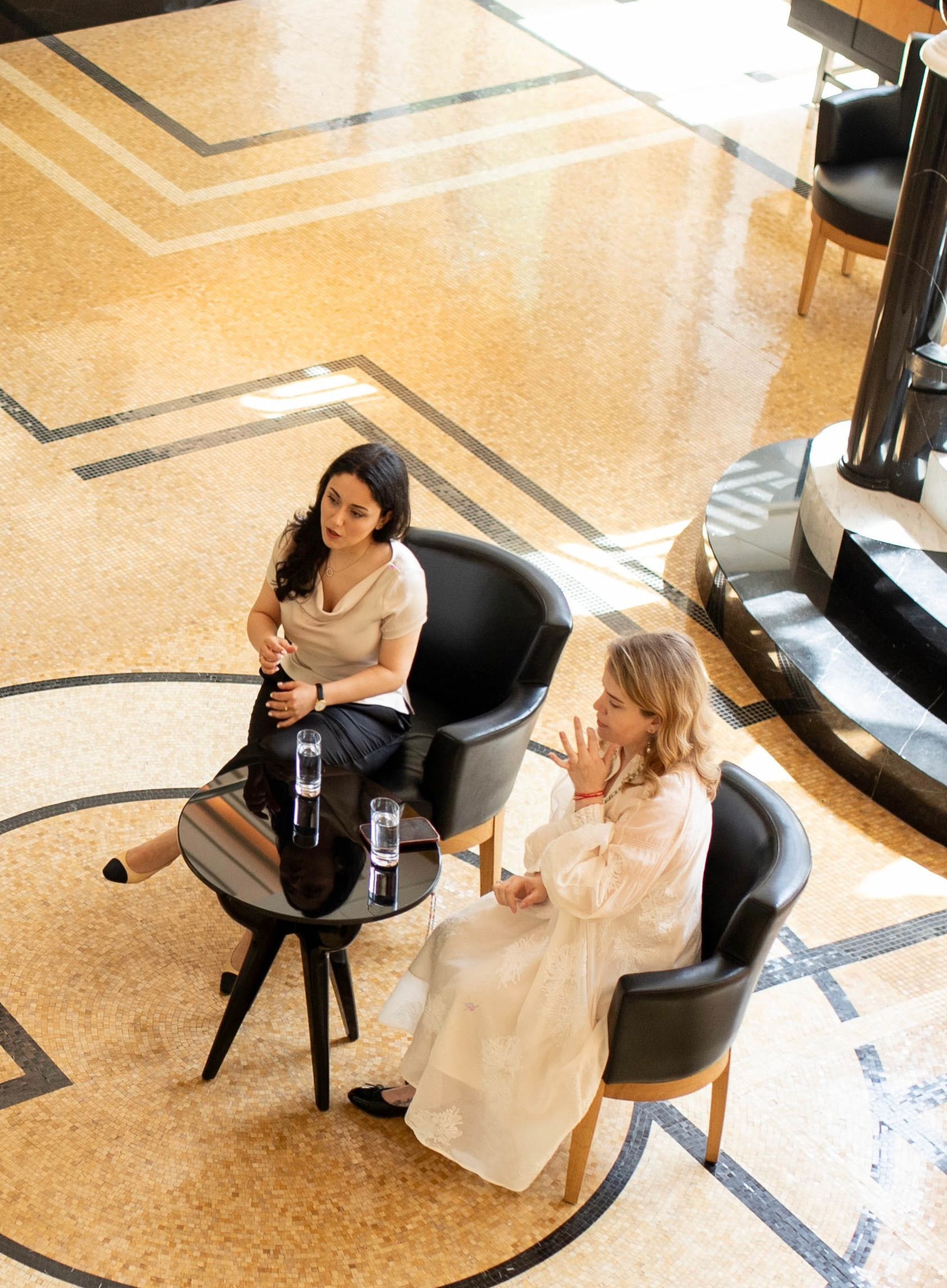Breadth vs Depth: exploring the similarities and differences between university application process in the UK and the US
Parvin Badalbayli and Vasilisa Roytman @ Pronto Club

Exploring the British and American University Application Processes
Parvin Badalbayli had the pleasure of joining The Pronto Concierge Club for a wonderful Educational Afternoon Tea session, hosted in collaboration with Sumner Consulting and Crimson Education. Alongside Vasilisa Roytman, they delved into an engaging discussion on choosing the right boarding school and navigating the British and American university application processes.
When it comes to applying to universities in the UK and the US, the goal may be the same – securing a place at the best possible institution – but the journey is quite different.
In the UK, the UCAS system allows students to apply to up to five courses, often within the same academic discipline. Applications are highly focused on academic achievement, subject-specific preparation, and demonstrating clear passion for the chosen field through the personal statement. Admissions tutors are primarily interested in academic potential and readiness for rigorous study in a specialised subject area.
In contrast, the US application process takes a more holistic approach. Through platforms such as the Common App, students apply to multiple universities with flexibility in intended majors. Beyond academic performance, American universities place significant emphasis on extracurricular activities, leadership roles, community involvement, and personal essays that reveal character, values, and life experiences. Standardised testing (SAT/ACT) often plays a role, and teacher recommendations carry substantial weight.
A key difference lies in breadth versus depth. The UK system values depth of subject expertise from the outset, while the US system allows – and often encourages – exploration before declaring a major. Both, however, require strategic preparation, early planning, and a compelling narrative that aligns with each country’s expectations.
It was a privilege to share these insights and answer thoughtful questions from such an engaged audience.






